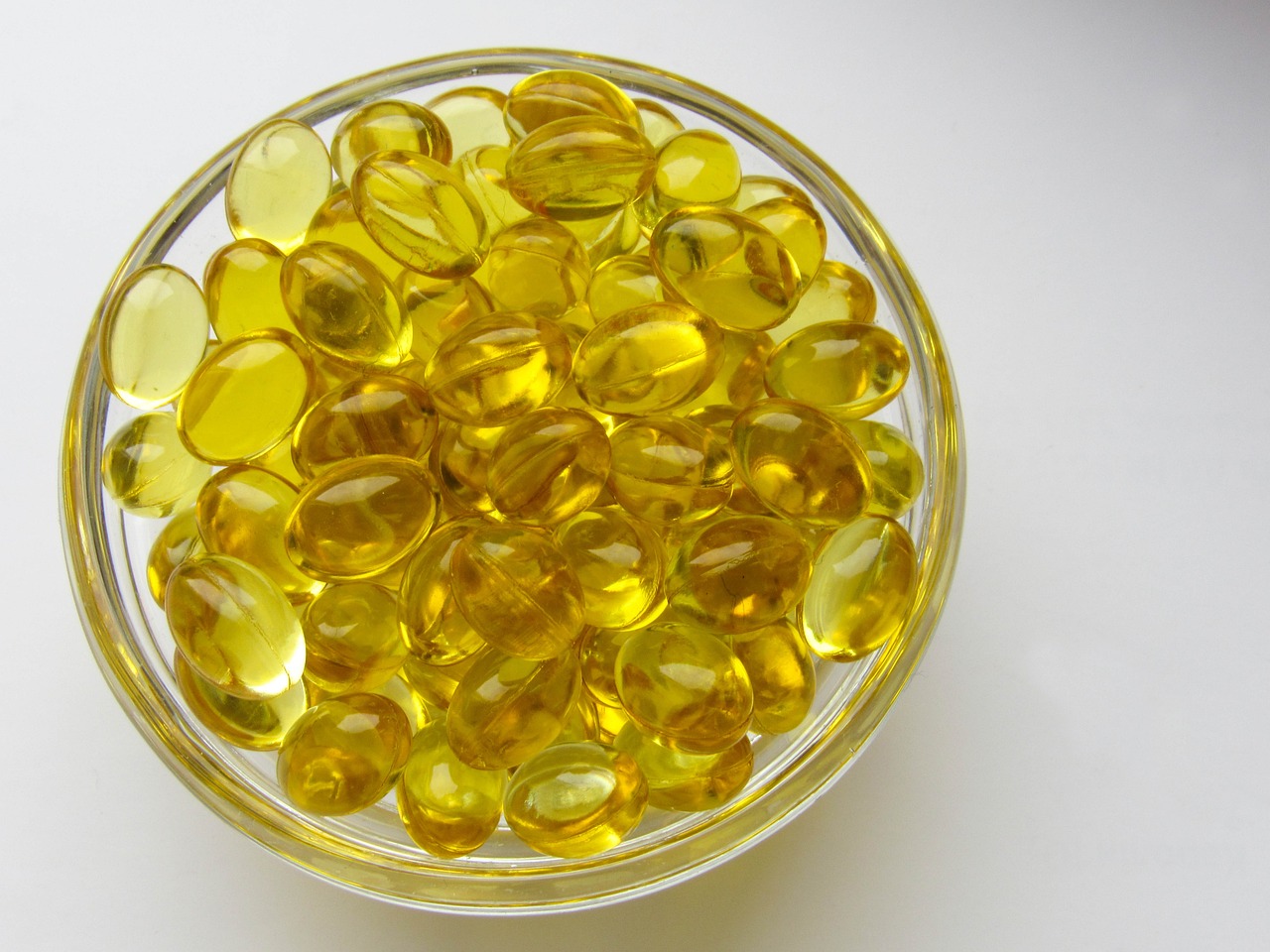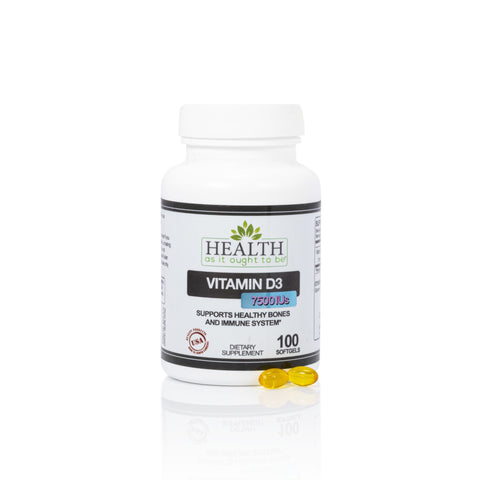Do You Know The Real Reasons You Should Take Vitamin D?
Over the past 10-15 years, physicians have really stepped up and unified in a collective push directing their patients to take vitamin D supplements.
Perhaps one of the biggest reasons we as a community of health practitioners are so excited about this essential vitamin is we’ve realized how crucial it is for overall health.
The truth is, most Americans are seriously deficient in this vitamin. Our vitamin D deficiency is so substantial, I’d say it’s one of the biggest reasons for declining health in the entire nation.
First, let me explain why we’re deficient in this important vitamin, and then I’ll give a rundown on scientifically sound reasons to supplement it.
The Weird Reasons We Don’t Get Enough Vitamin D
Here’s a fun little fact about vitamin D, as its name is a misnomer of sorts. Don’t you hate misnomers?
Oh well…
While other vitamins you get in your diet are organic compounds your body can’t produce on its own, and are essential for health; Vitamin D is actually a steroid hormone, so not a vitamin in the traditional sense.
You can forget about what you might have thought you knew about vitamin D, because you’ve probably just discovered you’re wrong.
Bioactive vitamin D or calcitriol is a steroid hormone that has long been known for its important role in regulating body levels of calcium and phosphorus, and in mineralization of bone. More recently, it has become clear that receptors for vitamin D are present in a wide variety of cells, and that this hormone has biologic effects which extend far beyond control of mineral metabolism.
Another interesting thing about vitamin D (which isn’t true of other vitamins) is your body makes it on its own. When sunlight hits your skin, the UV rays (which traveled 93 million miles to get here) activate a precursor molecule called 7-dehydrocholesterol, and then form vitamin D.
So why are we deficient in it if it comes from the sun?
Some of the biggest reasons Americans are deficient in vitamin D are:
A.) We’ve been taught we need to be very afraid of the sun.
B.) Many of us live in parts of the country where, during the winter months, the sun’s rays don’t carry enough UV light to help us generate enough of this important nutrient (this is especially true the higher in latitude you go).
These two factors alone are contributing to what’s essentially an easily avoidable pandemic.
If you’re not convinced Vitamin D deficiency is something to be concerned with, consider the following:
As Dr. Joseph Mercola writes:
- “The Centers for Disease Control and Prevention (CDC) reported that 32 percent of children and adults throughout the US were vitamin D deficient”
- “The National Health and Nutrition Examination Survey found that 50 percent of children aged one to five years old, and 70 percent of children between the ages of six to 11, are deficient or insufficient in vitamin D”
- “Researchers such as Dr. Holick (Author of the Vitamin D Solution) estimate that 50 percent of the general population is at risk of vitamin D deficiency and insufficiency.”
Just think about this for a second.
If you don’t supplement with vitamin D and you don’t get consistent, safe amounts of sunshine, then you’re most likely deficient in this nutrient.
And this could easily be contributing to a wide range of health problems.
Take a look below and see how a lack of vitamin D can negatively affect your health.
The Following Evidence Shows When You Take Vitamin D, Your Health Improves
There’s no disputing it – vitamin D’s essential nature of promoting good health is something you have to take seriously.
Most people take it because they’ve been told without the right amount of vitamin D, they’re going to watch their bones become brittle and experience painful osteoporosis.
That’s 100% true, however (and I’m not trying to scare you) vitamin D deficiency can actually be much worse.
What you’re about to learn is why vitamin D is so much more than a supplement used to promote bone health.
#1 – It Plays A Crucial Role In Heart Health.
Most people are aware that cardiovascular health is a huge concern in America; what they don’t realize is without the right amounts of vitamin D in the body, cardiovascular health declines significantly.
Dr. Michael Holick (the author of The Vitamin D Solution) wrote about this in his book. In a research study, evidence indicated a failure to get the right amount of vitamin D could decrease your health by 50 percent.
There aren’t enough studies to conclusively say supplementing with vitamin D is a proven preventative, but they do say if you’re deficient in it, your heart is much more likely to be affected.
#2 – It Helps Keep Your Immune System Healthy.
When people think about taking vitamins for immune health, odds are they turn to vitamin C or echinacea.
Good, do that – but don’t forget to get some vitamin D in there too.
Vitamin D plays a key role in immune health, including helping to fight some of the most common signs of seasonal coughs and sniffles doctors see on a daily basis.
Cells associated with your immune system are programmed to work synergistically with vitamin D. There are receptors on these cells, meaning they’re able to best function when vitamin D is present.
When vitamin D is present in the right amounts, it does a few things:
First is it helps your body mount a full-scale response to whatever might be causing your body harm. Vitamin D is known to help fight inflammation, a natural immune response, but vitamin D can help to bring the inflammation down in your body once that reaction is no longer needed.
The National Institute of Health wrote about this not too long ago.
In their article on vitamin D, they pointed out vitamin D helps to boost the body’s immune response. Furthermore, they pointed out a deficiency in vitamin D resulted in decreased immunity.
Then there are studies showing how effective it is at helping boost immunity:
” A study done in Japan, for example, showed that schoolchildren taking 1,200 units of vitamin D per day during the winter time reduced their risk of getting signs of seasonal sniffles, cough and sore throat by about 40 percent.”
#3 – It Plays A Role In Keeping Blood Sugar At Normal Levels.
In my personal and professional opinion, one of the biggest issues we’re faced with in America is dealing with wacky blood sugar levels.
Millions of people watch their blood sugar go up and down and up and down all day; these spikes and drops in blood sugar are the reason people:
- Deal with fatigue
- Can’t control their appetite
- Develop Metabolic Syndrome
- Can’t sleep at night
- Find it difficult to lose weight
- Experience a drop in libido
And much, much more.
Though you’ve probably never heard this before, Vitamin D plays a crucial role in insulin sensitivity and blood glucose levels.
Of course, taking vitamin D and refusing to alter your diet won’t cure everything; however, being deficient in vitamin D and eating as best as you can is still a serious problem.
Proof exists that people with higher levels of vitamin D in their blood have better control over their blood glucose levels.
A study published in the Journal of Clinical Diagnostic Research compared the levels of vitamin D3, calcium, and magnesium in patients. Researchers examined 30 patients with blood sugar concerns and 30 matched controls. Glucose, insulin, and vitamin D3 levels were measured using fasting blood samples. Compared to vitamin D3 levels (19.55 ng/mL) found in the control group, levels of vitamin D3(12.29 mg/mL) in the group with blood sugar concerns were lower. In that same group, calcium and magnesium levels were low too, whereas fasting glucose and insulin levels and insulin resistance are higher than the control.
And while it’s expected people with wonky insulin sensitivity would have higher insulin and blood glucose levels, studies like this show how the presence of vitamin D can help keep insulin and blood sugar in check.
Vitamin D supplementation does two things specifically that help:
Primarily, vitamin D helps optimize blood sugar by improving insulin secretion (discovered by a study in Diabetes) .
Secondly, when the body experiences an inflammation response, it causes the stress hormone to rise. Luckily, vitamin D helps relieve inflammation in the body.
Chronically high cortisol levels are known to jack up insulin levels, so vitamin D’s ability to reduce inflammation in the body can also help regulate blood sugar.
#4 – It Can Help Prevent Out of Control Cell Growth.
This is one of the most dramatic and least understood properties associated with vitamin D.
The funny thing (not funny “ha-ha” but more like ironic funny) is while everyone’s being warned not to go out in the sun because it causes skin issues (and if you do, make sure to wear tons of sunscreen), the truth is these warnings might actually be contributing to issues anyway.
In Dr. Holick’s book, he writes:
Studies have shown that if you improve your vitamin D status, it reduces risk of colorectal cancer, prostate cancer, and a whole host of other deadly cancers by 30 to 50 percent. You’re correct. Cancer is a big deal. You need to realize that vitamin D is playing a very important role in helping to maintain cell growth and to help fight cancer when a cancer cell is developing in your body.”
There are numerous studies showing how vitamin D plays a role in helping to maintain cell growth. Ultimately, these findings make tons of sense. Think about it – since vitamin D is a known anti-inflammatory and out of control cell growth can be caused by inflammation, then it stands to reason with the appropriate levels in the body your chances of developing this deadly disease go down.
But Wait, If You Take Vitamin D, Which One’s The Right One?
This entire time, you’ve seen me refer to vitamin D as plain ‘ol vitamin D.
The truth is, there are two different kinds.
And yes, one’s better than the other.
The two kinds of vitamin D are D2 and D-3.
Vitamin D2 is the vitamin D you see advertised on the back of cereals and inside of most processed foods labeled “vitamin fortified.” It’s cheaper to make, but your body has a hard time using it to stay healthy (meaning it’s not as good for you as D-3).
The typical D2 found in fortified foods is known as ergocalciferol. Ergocalciferol is barely useful for the body; it’s hard to absorb and hard for your body to convert it into the D-3 that it needs.
Vitamin D-3 (or cholecalciferol) is the absorbable kind of vitamin D you’ll want to supplement with.
When your body is exposed to sunlight, it produces vitamin D-3. You can also get vitamin D-3 if your diet consists primarily of animal fats and byproducts (they convert sunlight to vitamin D-3 just like you do).
The good news is, supplementing with vitamin D-3 is easy as pie.
Depending on your needs (you can have a blood test done if you’re intent on discovering your vitamin D-3 levels), it’s as simple as taking a recommended dose.
We find 7500 IUs is typically the best dose.
The vitamin D we recommend at the office, and the one our patients love (based on both price and potency), is the HAIOTB Vitamin D-3 7500 IUs.
This supplement is one of the most advanced supplements on the market.
Its bioavailability is as good as it gets; within minutes of taking the gel cap, your body’s cells will begin to sync up with vitamin D-3 molecules.
Take it once a day every day, and you’ll be combating the glaring deficiencies most other Americans suffer from.
Best of all is our price.
If you were to go to the local health food store or grocery store, you’d be spending much more than when you get it from us.
To get your own HAIOTB Vitamin D-3 7500 IUs click on this link or the image below.
Don’t wait! Vitamin D-3 deficiency is serious.
Click here or on the image below to save today!
Talk soon,
Dr. Wiggy
www.HealthAsItOughtToBe.com



